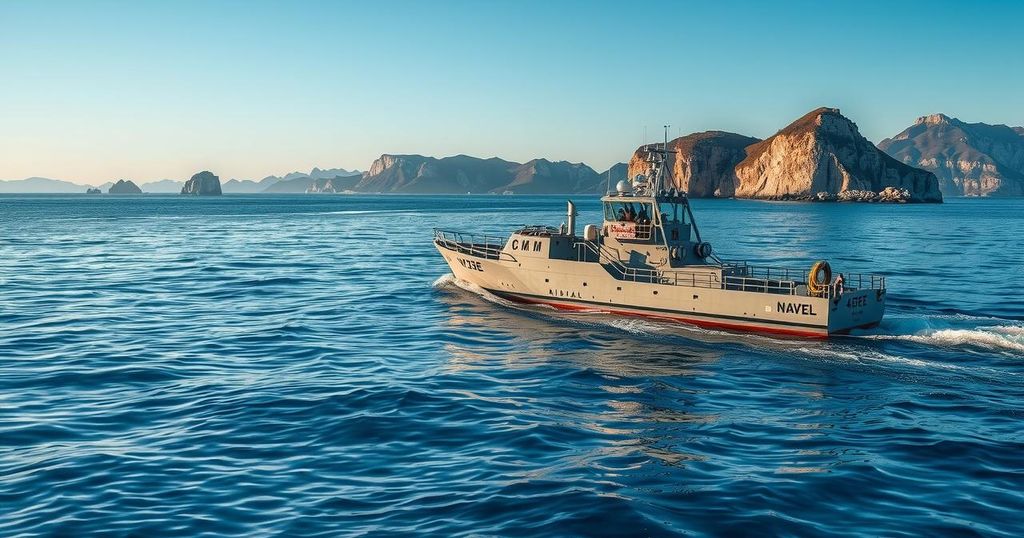Argentina Enhances Naval Patrols to Combat Illegal Fishing by Foreign Fleets
Argentina has deployed naval patrols to deter foreign fishing vessels, mainly from China, encroaching on its maritime borders. This includes heightened surveillance on nearly 400 vessels suspected of illegal fishing activities. The country aims to protect its lucrative squid market and marine ecosystems while contending with legal expansions of foreign fishing operations. Environmental groups raise concerns over potential overfishing effects on tourism and marine life.
Argentina has intensified its naval patrols in response to increasing incursions by foreign fishing fleets, particularly from China, pressing up against its maritime borders. The Argentine Navy has deployed two aircraft and two corvettes to monitor nearly 400 vessels suspected of illegally fishing just beyond the country’s exclusive economic zone. These vessels are believed to have switched off their tracking systems to evade detection while targeting lucrative shortfin squid, a $2 billion market drawing fleets from various nations.
The region has seen heightened tensions due to past illegal fishing incidents, including a notable clash in 2016 when Argentina’s Coast Guard sank a Chinese trawler caught fishing unlawfully in its waters. Moreover, China has sought to expand its presence legally, often collaborating with local fishermen or using foreign-flagged ships to circumvent regulations. An alarming report indicated that 10 Chinese vessels were operating under unregistered foreign flags, disguising their true origins while exporting their catch back to China.
Concerns are further exacerbated by a new agreement between the Argentine province of Santa Cruz and Hongdong Fisheries from China. While this agreement does not grant official permission for operations within Argentine waters, it proposes significant port assistance and infrastructural improvements, including upgrades to existing ports and the establishment of new shipyards and fishing plants. Environmental organizations caution that overfishing in the South Atlantic could lead to significant ecological impacts and threaten tourism by depleting squid populations.
The Argentine Defense Ministry has pledged to continue its monitoring efforts and enforce its maritime rights to protect national resources. The continual presence of foreign fishing fleets poses a challenge to Argentina’s sovereignty and fisheries management, with the government remaining vigilant to safeguard its maritime interests.
Argentina’s maritime enforcement efforts highlight the ongoing struggle against foreign fishing incursions, particularly from China. With the deployment of naval resources to deter illegal activities in its waters, the country seeks to protect its valuable marine ecosystems and economic interests. The recent agreements and reports illustrate the complex dynamics at play in safeguarding Argentina’s maritime resources against foreign exploitation.
Original Source: san.com




Post Comment